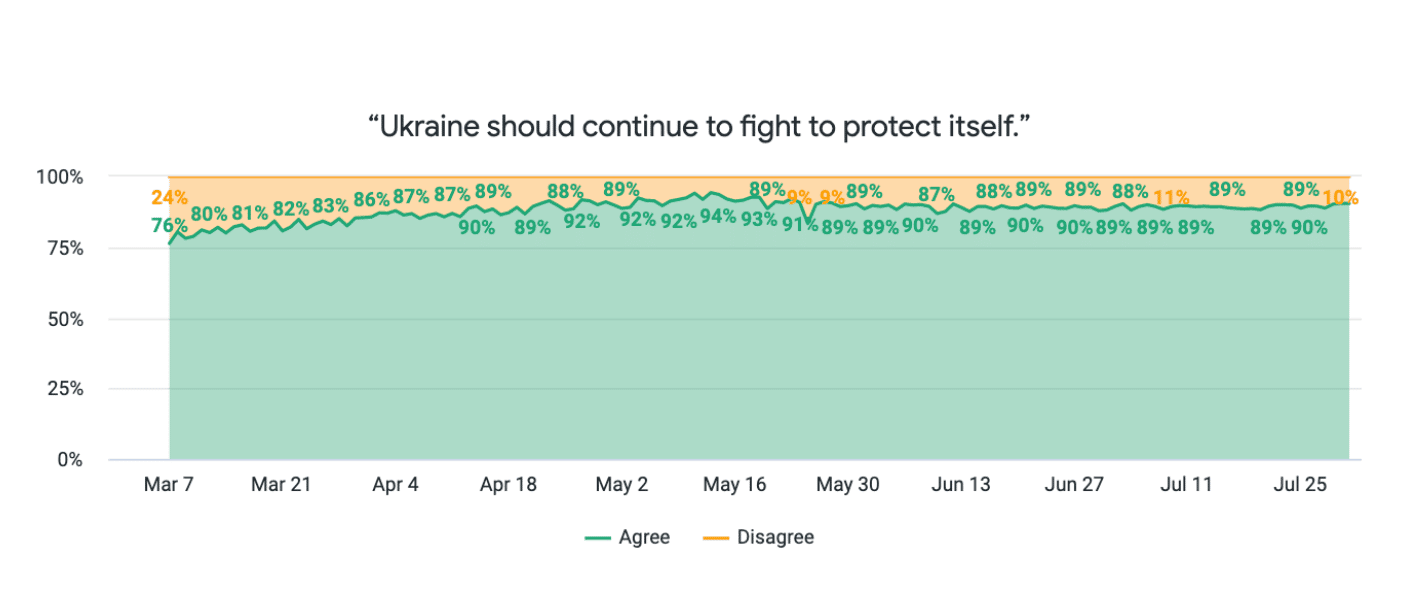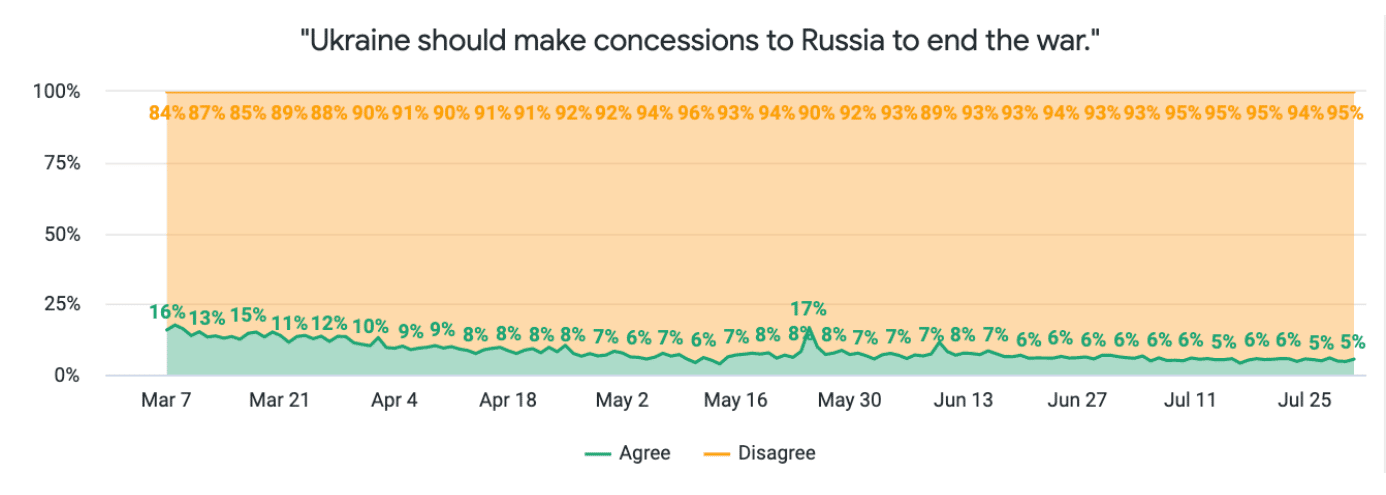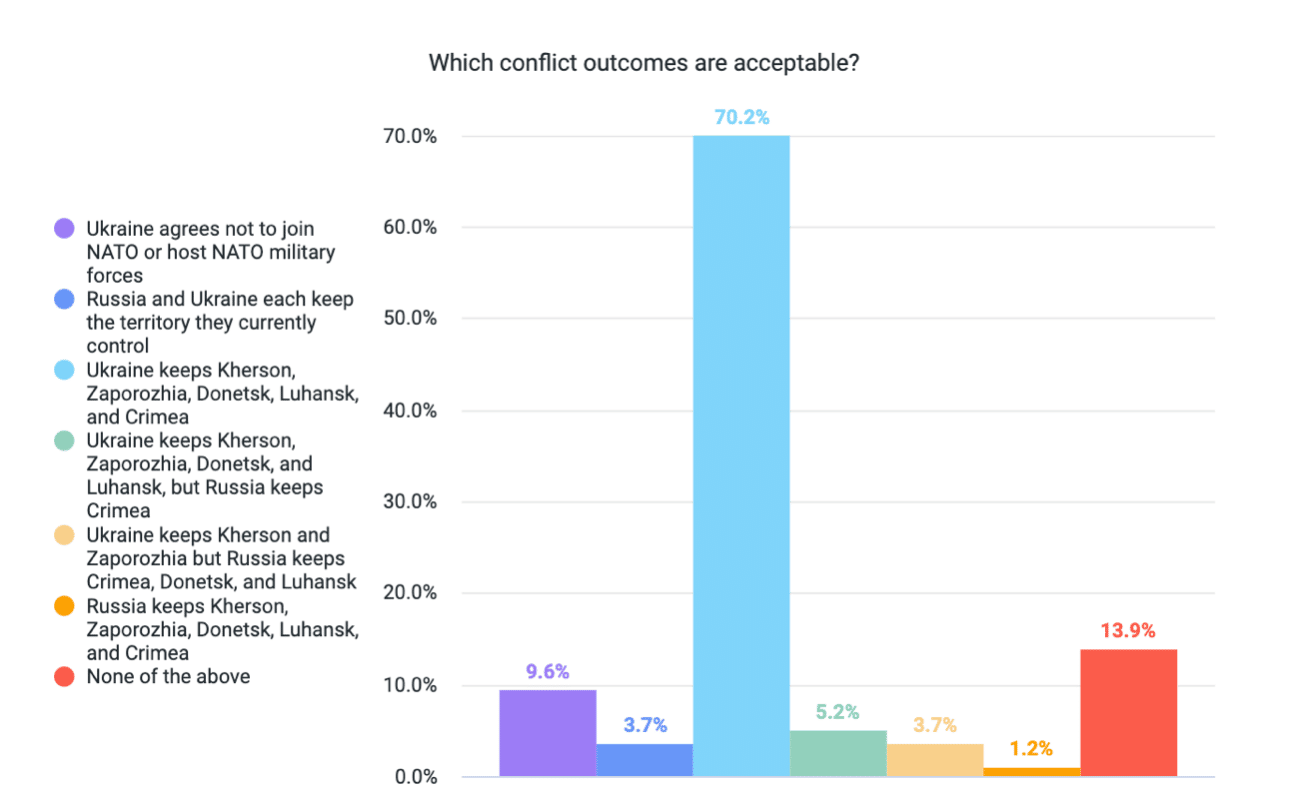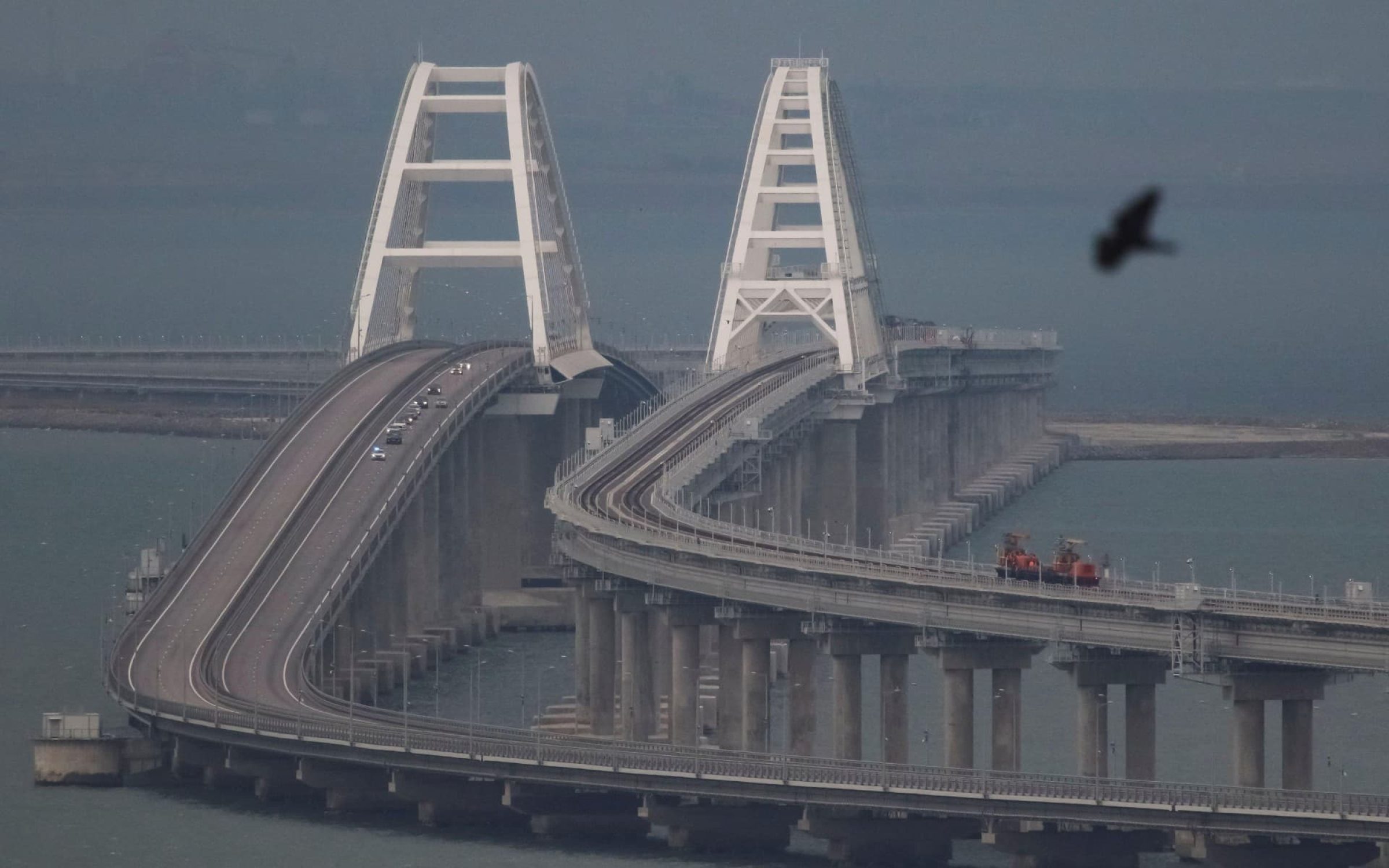The pictures may have been dramatic, but the recent attack on the Kerch Bridge linking Crimea and Russia looks increasingly like a non-event strategically and militarily. According to reports, the railway section of the Kerch bridge is already back up and running and the road bridge will be serviceable in a few weeks.
But there is one aspect of the event that has been truly dramatic and that is the profound effect it has had on the resilience and determination of the Ukrainian people, and even more their ambitions and expectations of how the war will end.
Since before the start of the conflict my company Premise has been conducting daily polls of their network of over 20,000 Ukrainian smartphone users across the country on how the conflict has affected them and their attitudes towards the war. The results have become a fascinating insight into how the nation has mobilised and united against their enemy.
Putin’s original strategic blunder was to assume that the Ukrainians would roll over in days. Our data would have told Putin what he now knows – the Ukrainians are not for turning. And it now shows their opinions are hardening further.
Since the invasion President Zelenskyy has managed to cohere the vast majority of his nation behind him – our latest poll from October 13th suggest that he enjoys a 89% approval rate in the west of the country and still maintains a 79% approval rate in the supposedly more Russian east – where disapproval is only running at 7%.

Support for Zelenskyy’s leadership has converted many to his policies. Between March and August this year, our data suggests that he has rallied around 15% or 6.6m Ukrainians to the view that Ukraine should continue to fight to protect itself. While most wartime leaders enjoy strong support, this momentum that Zelenskyy has secured is remarkable.

This support is mirrored in the growing defiance that Ukrainians are showing in the face of a conflict that is now eight months old. If Putin hopes that ordinary Ukrainians are becoming war weary he has again made a serious strategic error. The proportion of Ukrainians who feel their country should make concessions to end the war has fallen by two third since March and fell further after the bombing of the Kerch Bridge.

This is despite some high profile observers, notably Elon Musk, urging Zelenskyy to consider what he would give up in order to achieve peace. As you might expect, support for Ukrainians agreeing anything other than an “all-out” win vary by region, with those in the East in the midst of the fighting and with the greatest proportion of ethnic Russians, being most supportive, even if this equates to less than 10% of the surveyed population in the region supporting any concessions at all.

Perhaps most revealing in recent weeks has been a shift in attitudes towards Crimea. Whilst Crimea was seemingly “off the table”, as it was annexed by Russia in 2014, recent attacks on Russian infrastructure there has led to an increasing belief amongst Ukrainians that any victory would include recapturing the Crimean peninsula.

In May 2022, 44% of Ukrainians polled said that a return to the pre-February 24th boundaries would “qualify as a victory for Ukraine”. A week after the Kerch Bridge bombing, opinions had shifted markedly with more than 70% of Ukrainians are now equating an “acceptable outcome” of the war with re-taking not just the territories annexed since February, but also re-taking Crimea.
The implications of this are manifold. Many regard the Crimea as Russian territory in all but name, having been ceded to Ukraine by Russia when it was part of the USSR. In the “hierarchy of sovereignty”, it is clear that Russians feel that Crimea is much more a “part” of Russia than they do the regions of Donbas and Luhansk. Would Russia ever accept losing Crimea and if not, to what measures would they resort to defend it?
The attack on the Kerch Bridge was in reality a tactical “flash in the pan”, but its effect on the Ukrainian population, like the other earlier strike on the airbases there, are immensely important. These attacks are convincing Ukrainian minds that Crimea is “on the table” and is a legitimate war-aim of the Ukrainian military. If this sentiment solidifies, we are potentially looking at a longer and hotter war and one in which the stakes may be raised further for the entire region.
Arthur Soames is Managing Director of the research software platform, Premise Data.




